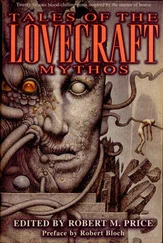Robert Pirsig - Lila. An Inquiry Into Morals
Здесь есть возможность читать онлайн «Robert Pirsig - Lila. An Inquiry Into Morals» весь текст электронной книги совершенно бесплатно (целиком полную версию без сокращений). В некоторых случаях можно слушать аудио, скачать через торрент в формате fb2 и присутствует краткое содержание. Жанр: Современная проза, на английском языке. Описание произведения, (предисловие) а так же отзывы посетителей доступны на портале библиотеки ЛибКат.
- Название:Lila. An Inquiry Into Morals
- Автор:
- Жанр:
- Год:неизвестен
- ISBN:нет данных
- Рейтинг книги:3 / 5. Голосов: 1
-
Избранное:Добавить в избранное
- Отзывы:
-
Ваша оценка:
- 60
- 1
- 2
- 3
- 4
- 5
Lila. An Inquiry Into Morals: краткое содержание, описание и аннотация
Предлагаем к чтению аннотацию, описание, краткое содержание или предисловие (зависит от того, что написал сам автор книги «Lila. An Inquiry Into Morals»). Если вы не нашли необходимую информацию о книге — напишите в комментариях, мы постараемся отыскать её.
Lila. An Inquiry Into Morals — читать онлайн бесплатно полную книгу (весь текст) целиком
Ниже представлен текст книги, разбитый по страницам. Система сохранения места последней прочитанной страницы, позволяет с удобством читать онлайн бесплатно книгу «Lila. An Inquiry Into Morals», без необходимости каждый раз заново искать на чём Вы остановились. Поставьте закладку, и сможете в любой момент перейти на страницу, на которой закончили чтение.
Интервал:
Закладка:
Once this political battle is resolved, the Metaphysics of Quality can then go back and re-ask the question, Just exactly how independent is science, in fact, from society? The answer it gives is, not at all. A science in which social patterns are of no account is as unreal and absurd as a society in which biological patterns are of no account. It’s an impossibility.
If society enters nowhere into the business of scientific discovery then where does a scientific hypothesis come from? If the observer is totally objective and records only what he observes, then where does he observe a hypothesis? Atoms don’t carry hypotheses about themselves around as part of their luggage. As long as you assume an exclusive subject-object, mind-matter science, that whole question is an inescapable intellectual black hole.
Our scientific description of nature is always culturally derived. Nature tells us only what our culture predisposes us to hear. The selection of which inorganic patterns to observe and which to ignore is made on the basis of social patterns of value, or when it is not, on the basis of biological patterns of value.
Descartes' I think therefore I am was a historically shattering declaration of independence of the intellectual level of evolution from the social level of evolution, but would he have said it if he had been a seventeenth-century Chinese philosopher? If he had been, would anyone in seventeenth-century China have listened to him and called him a brilliant thinker and recorded his name in history? If Descartes had said, The seventeenth-century French culture exists, therefore I think, therefore I am, he would have been correct.
The Metaphysics of Quality resolves the relationship between intellect and society, subject and object, mind and matter, by embedding all of them in a larger system of understanding. Objects are inorganic and biological values; subjects are social and intellectual values. They are not two mysterious universes that go floating around in some subject-object dream that allows them no real contact with one another. They have a matter-of-fact evolutionary relationship. That evolutionary relationship is also a moral one.
Within this evolutionary relationship it is possible to see that intellect has functions that predate science and philosophy. The intellect’s evolutionary purpose has never been to discover an ultimate meaning of the universe. That is a relatively recent fad. Its historical purpose has been to help a society find food, detect danger, and defeat enemies. It can do this well or poorly, depending on the concepts it invents for this purpose.
The cells Dynamically invented animals to preserve and improve their situation. The animals Dynamically invented societies, and societies Dynamically invented intellectual knowledge for the same reasons. Therefore, to the question, What is the purpose of all this intellectual knowledge? the Metaphysics of Quality answers, The fundamental purpose of knowledge is to Dynamically improve and preserve society. Knowledge has grown away from this historic purpose and become an end in itself just as society has grown away from its original purpose of preserving physical human beings and become an end in itself, and this growing away from original purposes toward greater Quality is a moral growth. But those original purposes are still there. And when things get lost and go adrift it is useful to remember that point of departure.
The Metaphysics of Quality suggests that the social chaos of the twentieth century can be relieved by going back to this point of departure and re-evaluating the path taken from it. It says it is immoral for intellect to be dominated by society for the same reasons it is immoral for children to be dominated by their parents. But that doesn’t mean that children should assassinate their parents, and it doesn’t mean intellectuals should assassinate society. Intellect can support static patterns of society without fear of domination by carefully distinguishing those moral issues that are social-biological from those that are intellectual-social and making sure there is no encroachment either way.
What’s at issue here isn’t just a clash of society and biology but a clash of two entirely different codes of morals in which society is the middle term. You have a society-vs.-biology code of morals and you have an intellect-vs.-society code of morals. It wasn’t Lila Rigel was attacking, it was this intellect-vs.-society code of morals.
In the battle of society against biology, the new twentieth-century intellectuals have taken biology’s side. Society can handle biology alone by means of prisons and guns and police and the military. But when the intellectuals in control of society take biology’s side against society then society is caught in a cross-fire from which it has no protection.
The Metaphysics of Quality says there are not just two codes of morals, there are actually five: inorganic-chaotic, biological-inorganic, social-biological, intellectual-social, and Dynamic-static. This last, the Dynamic-static code, says what’s good in life isn’t defined by society or intellect or biology. What’s good is freedom from domination by any static pattern, but that freedom doesn’t have to be obtained by the destruction of the patterns themselves.
Rigel’s interpretation of recent moral history is probably a pretty simple one: old codes vs. new chaos. But a Metaphysics of Quality says it’s not at all that simple. An analysis of separate moral systems sees the history of the twentieth century in an entirely different way:
Until the First World War the Victorian social codes dominated. From the First World War until the Second World War the intellectuals dominated unchallenged.
From the Second World War until the seventies the intellectuals continued to dominate, but with an increasing challenge — call it the Hippie revolution, — which failed. And from the early seventies on there has been a slow confused mindless drift back to a kind of pseudo-Victorian moral posture accompanied by an unprecedented and unexplained growth in crime.
Of these periods, the last two seem the most misunderstood. The Hippies have been interpreted as frivolous spoiled children, and the period following their departure as a return to values, whatever that means. The Metaphysics of Quality, however, says that’s backward: the Hippie revolution was the moral movement. The present period is the collapse of values.
The Hippie revolution of the eighties was a moral revolution against both society and intellectuality. It was a whole new social phenomenon no intellectual had predicted and no intellectuals were able to explain. It was a revolution by children of well-to-do, college-educated, modern people of the world who suddenly turned upon their parents and their schools and their society with a hatred no one could have believed existed. This was not any new paradise the intellectuals of the twentieth century were trying to achieve by freedom from Victorian restraints. This was something else that had blown up in their faces.
Phædrus thought the reason this movement has been so hard to understand is that understanding itself, static intellect, was its enemy. The culture-bearing book of the period, On the Road by Jack Kerouac, was a running lecture against intellect, … All my New York friends were in the negative nightmare position of putting down society and giving their tired bookish or political or psychoanalytic reasons, Kerouac wrote, but Dean (the hero of the book) just raced in society, eager for bread and love; he didn’t care one way or the other.
In the twenties it had been thought that society was the cause of man’s unhappiness and that intellect would cure it, but in the sixties it was thought that both society and intellect together were the cause of all the unhappiness and that transcendence of both society and intellect would cure it. Whatever the intellectuals of the twenties had fought to create, the flower children of the sixties fought to destroy. Contempt for rules, for material possessions, for war, for police, for science, for technology were standard repertoire. The blowing of the mind was important. Drugs that destroyed one’s ability to reason were almost a sacrament. Oriental religions such as Zen and Vedanta that promised release from the prison of intellect were taken up as gospel. The cultural values of blacks and Indians, to the extent that they were anti-intellectual, were mimicked. Anarchy became the most popular politics and squalor and poverty and chaos became the most popular lifestyles. Degeneracy was practiced for degeneracy’s sake. Anything was good that shook off the paralyzing intellectual grip of the social-intellectual Establishment.
Читать дальшеИнтервал:
Закладка:
Похожие книги на «Lila. An Inquiry Into Morals»
Представляем Вашему вниманию похожие книги на «Lila. An Inquiry Into Morals» списком для выбора. Мы отобрали схожую по названию и смыслу литературу в надежде предоставить читателям больше вариантов отыскать новые, интересные, ещё непрочитанные произведения.
Обсуждение, отзывы о книге «Lila. An Inquiry Into Morals» и просто собственные мнения читателей. Оставьте ваши комментарии, напишите, что Вы думаете о произведении, его смысле или главных героях. Укажите что конкретно понравилось, а что нет, и почему Вы так считаете.











